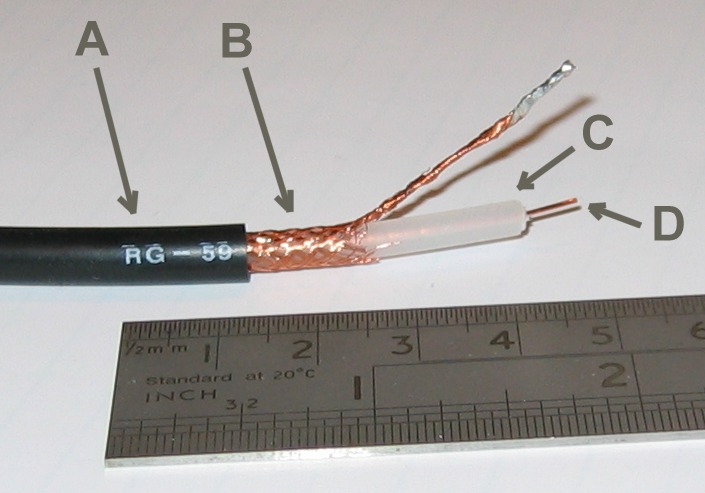If, as your comment indicates, you're talking about a coaxial cable such as 75\$\Omega\$ RG-59, it's virtually impossible realistically to affect it as you suggest (the coax keeps signals in and interference out). Well, you could heat it (perhaps with an induction heater) until the insulation vaporizes and the copper melts which technically would not be touching it, but I don't think that's what you want.
If a straight pin were to find its way between the outer shield and the inner conductor such that the two were shorted together, it would accomplish what you say you want. If it broke off flush, it could be fairly hard to detect, though a TDR (time domain reflectometer) would point to the general location within maybe 50cm. (RG-59 Image from Wikipedia commons)


